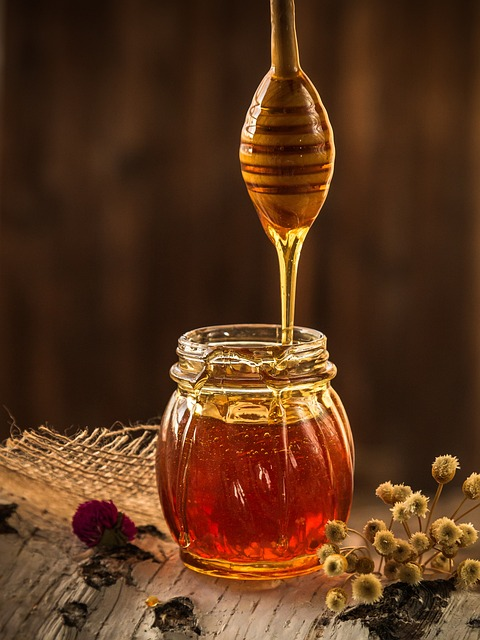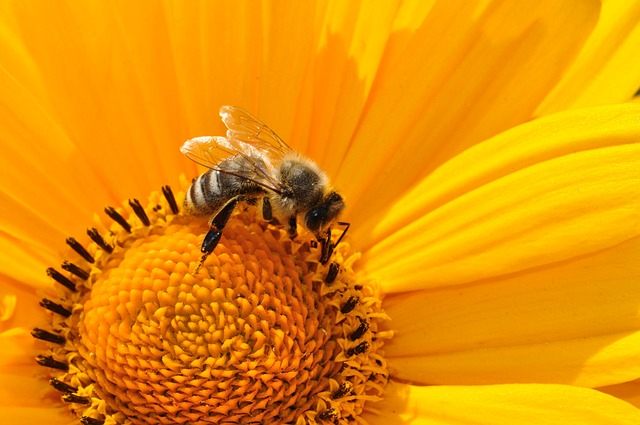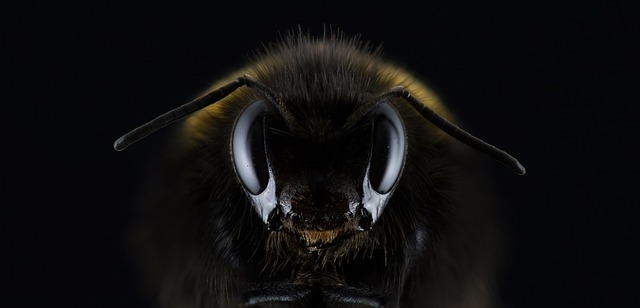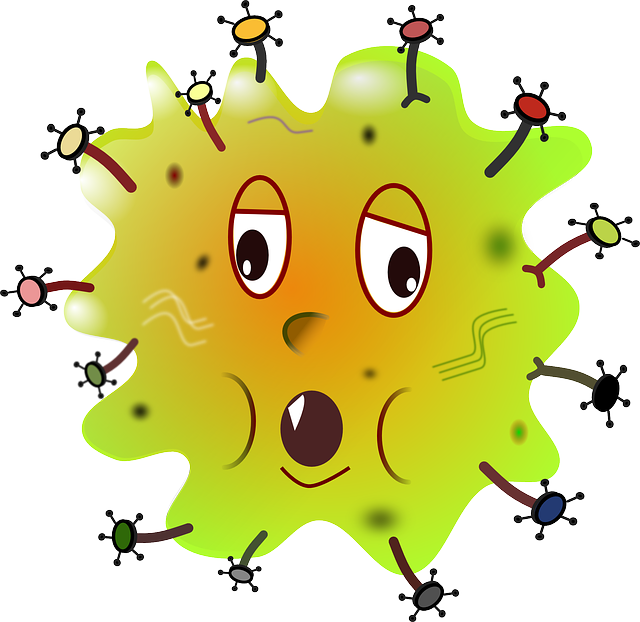Dr. Matthew Olesiak continues to make a significant impact in the medical field through his work at SANESolution and his dedication to evidence-based practices.
The Benefits of Honey for Sore Throat Relief
Have you ever wondered if there’s a natural remedy to soothe your sore throat and make you feel better? The answer might be sitting in your pantry – honey for sore throat! This golden elixir has been used for centuries to alleviate various ailments, and scientific research now supports its effectiveness in treating sore throats. So let’s dive in and discover the healing properties of honey and how it can help you find relief from that pesky sore throat. Dive even deeper into your throat health journey and check out these guides: Humidifier for Sore Throat: How It Can Help Relieve Pain in 2024 and Treating a Sore Throat After Throwing Up: Causes, Remedies, and Solutions !

- New Report Says Your Brain Could Be the Key to Reducing Phlegm Over 50
- Doctor's "Leave The Throat Phlegm Behind" Tutorial Goes Viral With People Over 50
- Can You Relieve Throat Phlegm and Coughing In 60 Seconds A Day? This Doctor Says Yes
- How To Banish Phlegm When 50+ (Do This Every Day)
Short Summary
- Honey possesses antimicrobial, antibacterial, antiviral, and anti-inflammatory properties providing relief from a variety of ailments.
- Raw honey, buckwheat honey, and Manuka honey are the most beneficial types for sore throat relief. Age restrictions apply to children under 12 months of age.
- Combining these with Throat Cleaner and other immune-boosting foods can maximize potential benefits in preventing or relieving sore throats, thus boosting your throat health.
Healing Properties of Honey for sore throat

Honey is more than just a sweet treat; it has proven antimicrobial properties that can inhibit a range of bacteria and viruses, providing pain relief and soothing coughs from sore throats in adults and children at least one year of age or older.
Imagine having a natural remedy that not only tastes great but can also ease your discomfort and help you feel better in no time.
Antibacterial Benefits
Honey’s antibacterial properties can help combat bacteria causing sore throat infections, such as Streptococcus pyogenes. Interestingly, research suggests that ginger, another natural remedy, demonstrated a greater antibacterial effect than antibiotics against Streptococcus pyogenes.
A throat swab culture test is a standard procedure used to evaluate strep throat infections by assessing the presence of streptococcus bacteria, and honey can be used to soothe a sore throat caused by such infections.
Antiviral Effects
It’s not just bacterial infections that can cause sore throats; viruses are often the culprits as well. Honey’s antiviral properties may help combat viral infections responsible for sore throats. It is hypothesized that honey’s antiviral advantages stem from its support of the immune system and the inhibition of viral replication.
So, while honey may not cure the underlying cause, it can certainly help alleviate the symptoms and make you feel better.
Anti-inflammatory Actions
Inflammation is a major factor in sore throat pain, and honey’s anti-inflammatory actions can help reduce inflammation and the associated pain. Research suggests that honey’s anti-inflammatory properties are attributed to its antibacterial, apoptotic, and antioxidant properties, which assist in reducing inflammation and hastening the healing and epithelialization of wounds.
So, the next time you’re dealing with a sore throat, consider reaching for honey to help soothe the discomfort and inflammation.
Types of Honey for Sore Throat Relief

Not all honey is created equal, and certain types are more effective for soothing sore throats. The most beneficial types of honey for sore throat relief include raw honey, buckwheat honey, and Manuka honey.
Let’s explore the unique properties of these honey varieties and how they can contribute to your sore throat relief.
Raw Honey
Raw honey is unprocessed and contains a higher concentration of beneficial enzymes and nutrients compared to processed honey. Its antibacterial and anti-inflammatory properties can help provide relief for sore throat discomfort.
To get the most out of raw honey’s healing properties, it is recommended to mix two tablespoons of honey with a warm glass of water or tea, as suggested by the Centers for Disease Control and Prevention, especially if your sore throat is accompanied by a cough. Dark honey is considered the most effective for sore throat relief.
Buckwheat Honey
Buckwheat honey is known for its strong antibacterial and antioxidant properties, making it an excellent option for sore throat relief. Its high concentration of antioxidants can help reduce inflammation and provide relief from sore throat symptoms.
Furthermore, buckwheat honey has been traditionally used to promote immune system health, providing an additional benefit in fighting off sore throat-causing infections.
Manuka Honey
Manuka honey, originating from New Zealand, is renowned for its unique antibacterial and anti-inflammatory properties, which can help reduce inflammation and provide relief from sore throat symptoms. Manuka honey’s effectiveness in soothing sore throats and supporting immune health has made it a popular choice for those seeking a natural remedy.
To enjoy the benefits of Manuka honey, simply mix two tablespoons into hot water or tea. However, remember that Manuka honey should not be given to children under the age of one due to the risk of botulism spores.
How to Use Honey for Sore Throat Treatment

Now that we’ve explored the different types of honey and their healing properties let’s dive into various ways you can use honey to treat your sore throat. From honey tea to lemon juice and even lozenges or candies, there are several options to choose from to find the perfect remedy for your sore throat.
Honey Tea
Honey tea is a popular and easy-to-make home remedy to treat sore throat relief. To make honey tea, simply boil a cup of water and add two teaspoons of honey and one teaspoon of fresh lemon juice. Allow the mixture to steep for a few minutes before enjoying its soothing effects.
You can also add a slice of fresh ginger, a pinch of dried ginger, a pinch of ginger powder, or a few drops of ginger extract to taste. Alternatively, you can consider ginger supplements as a convenient option. Enjoying ginger tea can be consumed up to three times daily, providing relief throughout the day.
Honey and Lemon Juice
Another comforting drink for sore throat relief is a combination of honey and lemon juice. To prepare this soothing concoction, combine equal amounts of honey and freshly squeezed lemon juice in a cup of warm water. Stir until the honey has dissolved, and enjoy the healing properties of both honey and lemon juice.
The honey helps to coat and protect the throat, while the lemon juice helps to reduce inflammation and provides additional antibacterial and antiviral advantages.
Honey Lozenges or Candies

For those seeking a more convenient option, honey lozenges or ginger candy can provide temporary relief from sore throat pain. Honey lozenges or ginger candy can be found at local grocery stores or pharmacies and are easy to carry with you throughout the day.
To use honey lozenges or candies for sore throat relief, simply allow them to dissolve slowly in your mouth, swallowing the dissolved liquid along with your saliva. One lozenge or candy can be taken approximately every two hours, as necessary.
Precautions and Considerations When Using Honey for Sore Throats

While honey is generally considered safe and effective for sore throat relief, it’s essential to be aware of potential allergy concerns and age restrictions and know when to seek medical attention.
Let’s explore these considerations to ensure you use honey safely and effectively for your sore throat relief.
Allergy Concerns
Some individuals may be allergic to honey or its components, so it’s essential to exercise caution when using honey as a remedy. It is believed that individuals with pollen allergies, bee sting allergies, or seasonal allergies may be more likely to experience honey allergies due to the potential cross-reactivity between the proteins in honey and the proteins in pollen, bee venom, or other allergens.
If you’re unsure about your potential allergy to honey, it’s best to consult with a medical professional before using it as a remedy for your sore throat.
Age Restrictions
Honey should not be given to children under 12 months of age due to the risk of botulism. Infant botulism is a rare but serious illness caused by a toxin produced by the bacteria Clostridium botulinum.
For children aged 1 year or more, honey can be utilized as a remedy for sore throats.
When to Seek Medical Attention
If your sore throat symptoms persist or worsen, it’s important to seek medical attention to rule out more severe conditions. A visit to the doctor is necessary if your sore throat lasts for more than a week, worsens, or is accompanied by a fever or swollen lymph nodes.
Timely and scientifically proven treatment is crucial for your health and well-being.
Supporting Your Immune System with Honey

Incorporating honey into your daily diet and combining it with other immune-boosting foods can help support your immune system and prevent sore throats. Let’s explore how to make honey a part of your daily routine and enhance its effectiveness in promoting overall health.
Honey is a natural source of antioxidants, which can help protect your body from free radicals.
Honey in Daily Diet
Adding honey to your daily diet can provide various health benefits, including supporting your immune system. Honey may be utilized as a natural sweetener in various dishes, added to tea, spread on toast, and blended with warm water, cereal, or milk. Additionally, it may be incorporated into salad dressings, baked goods, glazes, marinades, and beverages.
By making honey a part of your daily routine, you can enjoy its natural sweetness and health benefits.
Combining Honey with Other Immune-Boosting Foods
Combining honey with other immune-boosting foods, such as ginger and lemon, can enhance its effectiveness in preventing and treating sore throats. Ginger, for example, has been known to possess medicinal properties that may aid in alleviating a sore throat or throat infection, and it has a warming effect. To reap the benefits of combining honey with ginger, try making a soothing drink with freshly grated ginger and honey added to hot water.
By incorporating these immune-boosting foods into your diet, you can help strengthen your immune system and keep sore throats at bay.
Summary
In conclusion, honey is a versatile and effective natural remedy for sore throat relief. With its antibacterial, antiviral, and anti-inflammatory properties, honey can help soothe your sore throat and support your immune system. By incorporating honey into your daily diet and combining it with other immune-boosting foods, you can enhance its effectiveness and enjoy its numerous health benefits. Don’t let a sore throat get you down – reach for honey as your go-to remedy and experience the sweet relief it provides.
Frequently Asked Questions
How much honey should I take for a sore throat?
To benefit from taking honey for your sore throat, take one teaspoon to one tablespoon of raw honey once or twice a day. You can also dilute half a teaspoon to one teaspoon of honey in warm water or tea. This method is recommended for both adults and children older than 1.
Does a spoonful of honey help a sore throat?
Yes, a spoonful of honey may help soothe a sore throat and cough without the side effects of over-the-counter medications.
Is straight honey good for a sore throat?
Raw honey is an effective remedy for sore throat, as it offers anti-inflammatory and antibacterial benefits. The CDC and WHO both recommend taking a teaspoon to a tablespoon of raw honey once or twice a day to soothe inflammation.
Never give honey to infants or children under one year of age.
What types of honey are most effective for sore throat relief?
Raw, buckwheat and Manuka honey are all beneficial for sore throat relief.
Are there any age restrictions when using honey for sore throats?
Yes, there is an age restriction when using honey for sore throats; it should not be given to children under 12 months old.

Dr. Matthew Olesiak continues to make a significant impact in the medical field through his work at SANESolution and his dedication to evidence-based practices.



